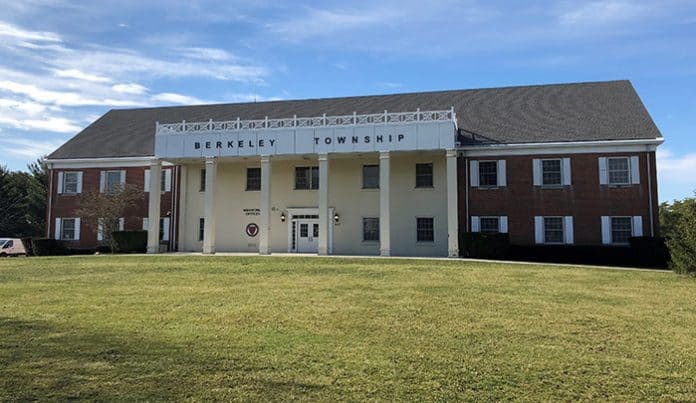
BERKELEY – Berkeley will continue to get the most funds available from the state for getting a good score on a financial exam.
The Best Practices exam encompasses a set of questions relating to management, finances, personnel, health insurance and other fiscal topics. Towns have to be able to answer “yes” (or not applicable or pending) to most of the questions in order to avoid being penalized.
Every municipality in New Jersey must fill out the Best Practices questionnaire in order to get the energy receipts owed to the town. Utilities used to pay towns taxes on power lines and other equipment on town property. Some years ago, the state decided it would like that money instead. So, now that money goes to the state. And, if a town does well on its Best Practices exam, it will get some of it back. The state keeps the rest.
At stake was $212,823.25, Councilman John Bacchione said. In achieving a high score, Berkeley was able to receive this money from the state.
“Berkeley Township exceeded the minimum score of 30 points and achieved a score of 41.5 points, which is due in part for the prudent financial practices of Berkeley’s financial department and the Mayor/Administration and Council’s choices in financial leadership policies,” he said.
Generally, Berkeley scores very high on these questions every year.
At the most recent Township Council meeting, the council voted to change some policies so that if certain questions are asked next year, the township can answer “yes” to them.
For example, they adopted a Current Fund Surplus Balance Policy. The township already had one, Chief Financial Officer Fred Ebenau said, but adopting a policy makes it official.
The questions ran the gamut of day-to-day operations, and fell into the following categories:
- Personnel
- Budget
- Financial Administration
- Capital Projects
- Transparency
- Authorities
- Procurement
- Cyber Security
- Shared Services
- Miscellaneous Operations
- Ratables/PILOTs (Payment In Lieu Of Taxes)
- Planning and Economic Development
- Environment
- Affordable Housing
Land To Be Preserved
At a recent meeting, the Township Council supported a move for the county to purchase some land in the area.
The Ocean County Natural Lands Trust Fund Advisory Committee often purchases tracts of land that sellers make available. Often they are spots that have environmental conditions that would make building difficult. The county always asks for a town’s governing body to approve the purchase, because the purchase would take the land off the town’s tax rolls. Towns generally approve of such purchases because the cost for having additional houses (such as infrastructure, police, public works, and school) outweigh anything they’d make in taxes.
Freeholder Director Virginia Haines said on a later date that the property is about half an acre, referred to as the Lifetime Homes/Hunt property. The offered price was $18,000.







